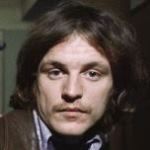

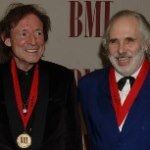
A look at my favorite musician of all time (who died last week) after the jump ….
I can date my rock-and-roll baptism to Saturday, September 19, 1970 …. I had been a music fan before this (had just turned age fourteen) but on that day I saw (at Madison Square Garden) Led Zeppelin in a 2:00 PM matinée (they also had an 8:00 PM show). Back home at 8:00 PM, I saw the US premiere of a film by Tony Palmer that showed the band Cream’s farewell concert in London nearly two years earlier (November, 1968).
I had liked the band before (as a very young tyke) but that film cemented the work of its bassist as my first musical hero (which he remained to the end of his life) due to his amazing voice, songwriting and bass playing.
And so for those of you whose favorite musicians are no longer alive (i.e., John Lennon, James Brown, Laura Nyro, Elvis Presley, Jimi Hendrix, Billie Holiday, Janis Joplin) I can now relate: with the death of Jack Bruce – best-known as the bassist of the super-group Cream from the 1960’s, with Ginger Baker on drums and a 23 year-old Eric Clapton on guitar – who died this past Saturday from liver disease (and there were several diaries on this site announcing it).
This is hitting me harder than I expected it to … after all, he had a liver transplant in 2003, which prolonged his life for another eleven years. Yet in the end … it could do so no longer.
I was away visiting friends in Albany, NY last Saturday (the day of his death) and so it was not until the following day’s newspaper that I learned of it. To quote an old John Mayall song, “When I read the news … night came early in my day”.
Yet he was not a sideman bassist: on the contrary, he wrote and sang much of Cream’s material in their short existence (1966-1968) and often played keyboards on records and in concert. As an aspiring bassist in my youth, I had a cherry-red Gibson EB-3 bass that he used, and along with two other Jacks (Jack Casady of the Jefferson Airplane and later jazz bassist Jaco Pastorius) he provided a role model for me to follow.
If you only know him for the two hit songs he wrote/sang with Cream, Sunshine of your Love and White Room that’s not bad ….. but he was so much more. Let’s have a overview at his career.
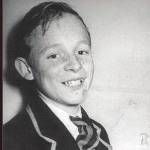
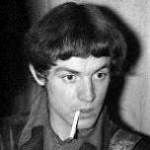
Born in May, 1943 near Glasgow, Scotland, his family actually moved for a time to Canada … before his father having difficulty holding down steady work (due to his strong left-leaning union politics) forced their return. (In his authorized biography, Jack wondered if they had stayed whether he would have joined forces with Joni Mitchell).
He was an accomplished cellist in his youth (earning a scholarship to the Royal Scottish Academy of Music in Glasgow) before eventually taking-up the acoustic double bass. However, the academy found out he was moonlighting in Jim McHarg’s Scotsville Jazzband (to make ends meet) and gave him an ultimatum – Quit, or leave school. His formal education … ended there. (He was not alone, as this happened to the Greek singer Nana Mouskouri – “I studied classical music at The Greek Conservatory but one day my professor banned me from my exams when he discovered I was singing in jazz nightclubs”).
In 1960, Jack toured Italy with the Murray Campbell Big Band – whose stage attire included kilts and clan tartans – and later joined other Scottish touring bands.
His big break came in 1961 when the Bert Courtley Sextet performed at a college ball with other bands …. when as the sextet’s drummer Ginger Baker put it in his autobiography, a “scruffy young man with a Scottish accent” asked if he could sit in with the band. Baker and bandmate Dick Heckstall-Smith decided to show-up the interloper by choosing a song with numerous chord changes … only to have Jack Bruce follow right on-cue and “he could swing like mad”.
Heckstall-Smith recommended him to the pioneering British blues bandleader Alexis Korner, who hired Bruce – and later Baker and Heckstall-Smith – to his Blues Incorporated band (photo left below: Korner on guitar, Jack on double bass and sitting-in on vocals a very young … Mick Jagger). Baker and Bruce left in late 1962 (along with the band’s alto saxophonist) to form the Graham Bond Organisation which had two incarnations: the first as a modern jazz quartet (with Jack on double bass and future Mahavishnu Orchestra leader John McLaughlin on guitar) and after McLaughlin left, as an R&B/blues band (with Graham Bond now on Hammond B3 organ) … they are in the photo right below). It was here that Jack Bruce first began playing the electric bass, and also began singing (based on his voice training at the academy). The esteemed journalist/author Chris Welch wondered why the then 21 year-old Bruce wasn’t singing more, writing that “Graham’s idea of singing was to shout himself hoarse every night”. But at 27, Graham was the older and more experienced musician and frontman, and they had become a success in the London blues scene over the next three years.
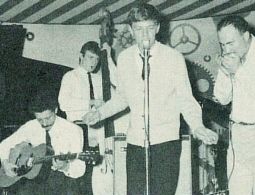
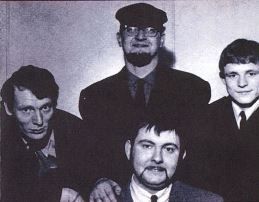
In 1965, Marvin Gaye heard the Organization while touring Britain …. and actually offered Jack Bruce a job in his touring band, as he was that impressed with his playing. Jack declined as he was about to get married to the Organization’s fan club secretary Janet Godfrey – with whom he had two sons before their 1980 divorce – and Janet later wrote lyrics to some of Cream’s early songs (such as “Sweet Wine” and “Sleepy Time Time”).
During this time, Bruce and Baker became a monster rhythm section – one of the best in jazz/blues/rock – yet Ginger had a fiery temper and often clashed with Jack’s more free-playing style. Ginger fired him from the Organization in late 1965, and so Jack spent time briefly with the legendary British blues bandleader John Mayall – where he first played with Eric Clapton. In the foreword to Jack’s biography, Clapton wrote, “My life was never the same”, citing Jack’s innovative ways and “the joy I felt from being able to play over the solid foundation he created”. Here is their recording of Stormy Monday live at the Flamingo Club.
Jack left to join Manfred Mann and stayed long enough to play on his hit single Pretty Flamingo in early 1966 when fate intervened. Ginger Baker had discussed with Eric Clapton (as the two had jammed together often) the idea of forming a band to which Clapton agreed … on the condition that Jack Bruce be the bassist. Baker had to agree he was the best choice (despite his antagonism) and the rest is history. Just a month ago in this space, I wrote about travelling to London to see the 2005 Cream reunion concerts – and you can read more at this link about the band.
Beginning in 1969 (after Cream’s demise) Jack has often led his own bands. And with the exception of a short-lived (and in hindsight, ill-advised) time in the band West, Bruce & Laing – with Leslie West and Corky Laing from the band Mountain – Jack often chose a less-commercial musical path in life. He once said that – especially due to songwriting credits – that he had “two of everything”. In fact, when Eric Clapton and Ginger Baker formed the (equally ill-advised) band Blind Faith, Jack responded thusly:
After Cream I decided, and it was a deliberate decision, not to continue down that road and when Eric and Ginger were playing at Madison Square Garden with Blind Faith I was playing in a club called Slugs in New York’s East Village which is no longer there. But that was a great experiential jazz club.
Songs for a Tailor and Harmony Row – the latter was a rundown Glasgow tenement (since demolished) that Jack’s family lived in for a time – were early solo albums that contain some of his best solo work.
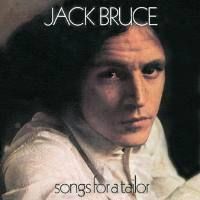
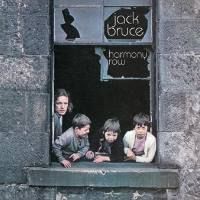
In 1971, he joined John McLaughlin and organist Larry Young in Tony Williams Lifetime – a pioneering jazz-rock band led by the explosive jazz drummer Tony Williams (who had been a standout with Miles Davis).
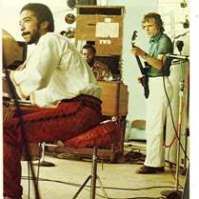
Some of the performers who have been members of Jack’s bands over the years include former Rolling Stones guitarist Mick Taylor, former Jimi Hendrix drummer Mitch Mitchell, former Sly Stone keyboard player Bernie Worrell and jazz performers such as guitarist Larry Coryell and keyboardist Carla Bley – it was Bley who asked Jack to appear on her epic-length Escalator Over the Hill recording where Jack sang a short duet … with Linda Ronstadt (recorded remotely).
In more recent years, one of Jack’s mainstays was former “Living Color” guitarist Vernon Reid – and just a few years ago, they formed a tribute band to Tony Williams (named after one of Lifetime’s songs) called Spectrum Road – with the addition of keyboardist John Medeski (of Medeski, Martin & Wood) plus the fiery drummer Cindy Blackman – known today as Cindy Blackman Santana after her marriage to Carlos Santana.
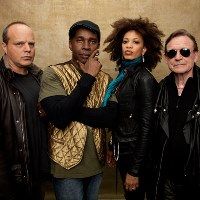
If you are looking for career retrospectives: two I recommend are Willpower (from 1968-1988) which contains much of his best studio work and Cities of the Heart – a 1993 50th birthday party live show, also containing much of his best material.
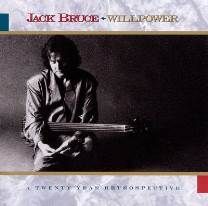
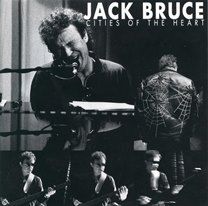
As noted in the other Cream diary: one of the reasons why the Cream reunion came off (after thirty-seven years) was Jack’s aforementioned liver transplant in 2003 – which nearly failed. Jack recuperated enough to perform well at the 2005 reunions and resumed touring … yet the result of his heavy drug use years earlier eventually caught-up with him. Still, I was grateful that I had a chance to see Jack three times as a solo performer, and twice (once in London and once in New York) when Cream reunited for several shows in 2005. That same year, Jack and his long-time lyricist Pete Brown won an award from recording right organization BMI – for their song “White Room”.



I was also grateful that he lived to release one final album Silver Rails this past spring, and it is on my CD player as I write. Eric Clapton and Ginger Baker both posted eloquent tributes …. and Eric Clapton even recorded a short (2-min) acoustic guitar tribute that he posted for free … click the following link to hear For Jack ….
Jack’s family posted this on Facebook …
Jack Bruce’s family would like to thank everyone for the kind words and messages from around the world with friends and fans sharing in their grief. Jack’s private funeral will be held on Wednesday 5th November at 10am, Golders Green Crematorium, London. Jack always liked a good audience, so fans are welcome to cheer his arrival at the final ‘gig’.
And that is what happened …. with many mourners including Eric Clapton and Ginger Baker.
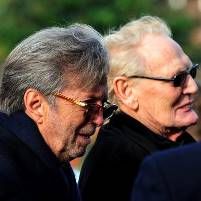
Rest in peace, Jack …. and I’ll leave you with three of his tunes to play-us-out …..
One is my favorite song from his final album Silver Rails entitled Fields of Forever … you can hear that his once mellifluous voice had weakened, but was still vibrant:
Although I have other Jack Bruce favorite songs from Cream (including NSU, “Deserted Cities of the Heart” and the timely “Politician”) … my favorite song from the reunion concerts was, We’re Going Wrong – a song I’ve heard Jack sing with his own band … but hearing Cream perform it was the best.
And finally, perhaps the most elegant song he wrote/performed after his time with Cream. Theme for an Imaginary Western is a ballad that (metaphorically) refers to the pioneering British blues pioneers of the 1960’s, striking out in search of new territory. It appeared on Jack Bruce’s first solo album Songs for a Tailor – which was produced by Felix Pappalardi who had previously been Cream’s producer. Felix then brought it with him to his band Mountain, and others have since covered the song.
After Pappalardi was shot and killed by his wife in 1983, Jack Bruce had subsequently dedicated the song to Felix. And below you can hear it.
When the wagons leave the city
for the forest and further on
Painted wagons of the morning
dusty roads where they have gone
Sometimes travelling through the darkness
they met the summer coming home
Fallen faces by the wayside
it looked as if … they might have knownO the sun was in their eyes
and the desert that dries
In the country town
where the laughter sounds
1 comment